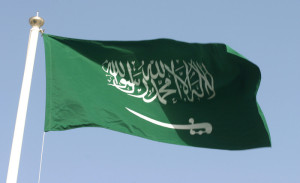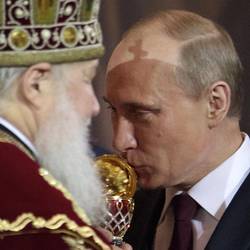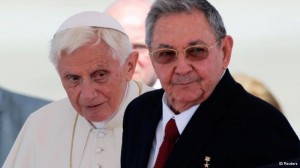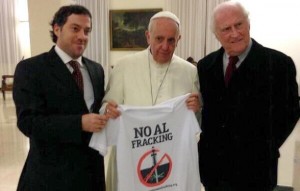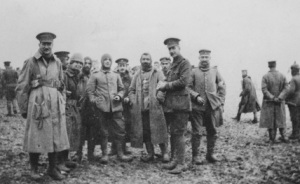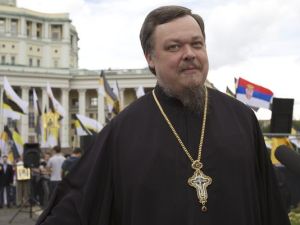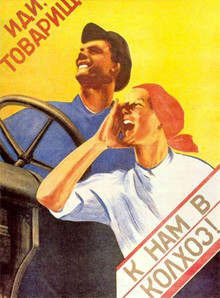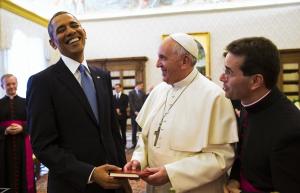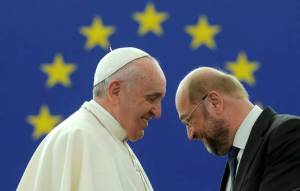 Pope Francis gave a speech at the EU parliament last week. There were the usual leftist themes that we have come to expect from this pope (“we encounter certain rather selfish lifestyles, marked by an opulence which is no longer sustainable”, “uncontrolled consumerism” and so on) complete with the hints of dark conspiracies that remind us that Francis’ thinking remains heavily influenced by the Peronist Argentina of his youth:
Pope Francis gave a speech at the EU parliament last week. There were the usual leftist themes that we have come to expect from this pope (“we encounter certain rather selfish lifestyles, marked by an opulence which is no longer sustainable”, “uncontrolled consumerism” and so on) complete with the hints of dark conspiracies that remind us that Francis’ thinking remains heavily influenced by the Peronist Argentina of his youth:
The true strength of our democracies – understood as expressions of the political will of the people – must not be allowed to collapse under the pressure of multinational interests which are not universal, which weaken them and turn them into uniform systems of economic power at the service of unseen empires.
Unseen empires?
And there was the jibe directed at Europe’s failure to live up to the Vatican’s natalist expectations:
In many quarters we encounter a general impression of weariness and aging, of a Europe which is now a “grandmother”, no longer fertile and vibrant.
Over at the XX Committee, John Schindler picks up on that, correctly noting that low fertility is not only a European “problem” (his word, not mine), but then goes on to argue this:
Francis’s analysis of Europe’s population problem, which is really a deep crisis of civilizational pride, identity and meaning, manifesting in a lack of will to even reproduce, is difficult to refute…
On the contrary, it couldn’t be easier. Declining birth rates can be a response to economic pressure, certainly (as was evident, say, during the Great Depression or in Eastern Europe during and after the Soviet collapse), but it’s a stretch to see it as evidence of Europe’s civilizational decline. British birth rates, for example, began to drop in the later Victorian era, a time when its national self-confidence stood at a zenith that was, broadly, to endure until 1914:
The decline in birth rates, identified as stage three of the demographic transition, took place in England from around 1870 to 1920. In 1871 the average woman was having 5.5 children but by 1921 this had fallen to 2.4 children.
(Office of National Statistics)
Smaller families is what people want when science and the likely survival of their existing children give them the chance to make that choice. And as we enter an age where, thanks to automation, the demand for labor—as we are already seeing—is ebbing, that’s not such a bad thing.
That’s not to say that the transition to a lower birth rate is without its problems. It isn’t (who pays for the old?), but they will not be solved by more people: the unemployed will not be able to pay for the retired. Mass immigration is not the answer.
On that topic, Francis had quite a bit to say, using the hideous tragedy of the drownings at sea of would-be immigrants (“We cannot allow the Mediterranean to become a vast cemetery.”) as (in essence) an argument for Europe to adopt an even more open immigration policy than it already has, something he has done before, perhaps most notoriously in his speech on the Italian island of Lampedusa, a performance that ‘Theodore Dalrymple’ (Anthony Daniels) quite right rightly described as a display of “moral exhibitionism”.
Meanwhile, Schindler notes:
“Why aren’t hundreds of asylum seekers drowning trying to get to Japan?” asked one analyst, pointedly, a year ago. After all, Japan is a very nice country with a most advanced economy and a desperate shortage of people. But refugees don’t try to reach the coast of Japan. For the simple reason they know they will be turned away. Preferring to preserve its native population, Japan turns away virtually all refugee claimants, while Australia lets many of them in, with generous benefits to boot. South Korea, like Japan, is not open to more than few refugees despite a serious birth dearth, so few come. In 2014, any developed country that pursues a permissive policy towards refugees is going to get more of them, perhaps many more.
And finally, when it came to the pope’s comments on the current unhappy state of the EU, many euroskeptics seemed to enjoy the thought that the pope was one of them. They were wrong.
Writing in the Daily Telegraph (link via EUReferendum), Christopher Booker explains:
The Pope’s address to the European Parliament seemed devastatingly critical. He spoke of how “the great ideas which once inspired Europe seem to have lost their attraction, only to be replaced by the bureaucratic technicalities of its institutions”.
He described it as looking “elderly and haggard” in “a world which frequently regards it with aloofness, mistrust and even, at times, suspicion”. He observed how it had lost the trust of its citizens, who see it too often as “downright harmful”.
Reading the Pope’s speech in full, however, he doesn’t seem to have grasped the EU’s real nature at all: in particular, why the core principles on which it was set up were inevitably destined to bring it to its present dismal pass.
Quite.
Somehow the pope seems to have missed the fact that the EU was a profoundly post-democratic project. How it was sold (peace, reconciliation and so on) bore little relation to what it really was.
Oh well.

